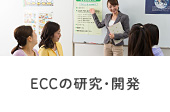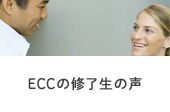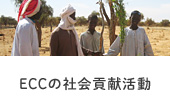第50回 全国大会結果
大学の部 3位
生駒 芙美乃 ぱある(神戸大学)
The Dreams That Our Parents Grant
When I was in my elementary school, reading biographical manga was quite popular. Globally famous people who were written in those manga were diligent and intelligent, like Marie Curie, who was a bookworm in her youth, or like Hideyo Noguchi, who also studied hard when he was young. From these examples, we learned that to make our dreams come true, we need to study very hard to become intelligent. However, as I grew up and gained more life experiences, I have realized that more than intelligence, there is something else that is needed to achieve our dreams in this world.
The main method for most Japanese youth to achieve their dreams today is to graduate from a high-ranking university. In fact, according to the Ministry of Education, over half of students chose to pursue university in 2020. However, I’m quite sure the parents here listening to my speech are aware of the amount of money required in entering universities in Japan. To be specific, in the 2018 Student Payment Survey, it states that it costs approximately 2.4 million yen to enter and graduate from a 4-year university in Japan. This does not include all the other costs students must incur, such as required textbooks and class materials, transportation fee to school, and so on. Furthermore, graduating from university does not often mean the end of financial payments. About half of the students today receive scholarships, and most of those scholarships are in the form of loans. Thus, loan scholarship students are often burdened to pay back large sums of money for many years even after graduating. Some even attempt to work hard at part-time jobs while studying as a student to help pay them back. This is one of the main reasons why 86% of public university students work part-time while studying, because higher education just costs too much.
Having costly education is not an issue only for university students. One of the reasons why higher education is such a burden for students is because the amount of social welfare supply for children in Japan is basically not enough. According to a 2017 OECD report, Japan was ranked 5th from the bottom for public spending on primary to higher education. Moreover, Japan’s private education spending tends to increase, which means Japanese families are forced to pay huge amounts of money for getting their education. In short, the quality of education the youth of Japan can receive is very dependent on the average salary their parents receive. This is becoming one of the causes for wealth disparity in education in Japan.
According to the research done by Ochanomizu University, the amount of household income made a difference of 20% on the academic ability of the child. The less the household income was, the lower the score the children got, which implies that household income and our academic levels are strongly connected. This is forming a negative cycle as the wealthy in Japan will receive more and better education, while the poor and even average households will receive a less quality education. This trend of educational inequality is very visible in universities today. In 2013, Japan Student Services Organization stated that only 4% of students in public universities are from a family typically known as ‟poor‟ with an annual income of less than 2 million yen. Considering that many children go to a university, this means a large part of our dream’s path has already been decided- so what is the point of us dreaming?
An easy solution for this cycle is to say that the government should simply spend more money on public education, but more realistically, I believe the issue needs to be considered more deeply. Considering the budget deficit caused by a declining birthrate and aging population, I understand that the Japanese government does not have so much money to spend on the young, especially when we young have low voting turnouts. However, even if the voting turnout of youth were 100%, there is still a population difference of 8 million between the young and the elderly, meaning we young cannot become the major reason to steer the government by us alone. Therefore, to aim for a better education future in this country, it is not only demanding the young to think about the expense, but also the working generation, such as our parents, and grandparents to debate about our future more, because the effort of those facing this issue, us students, will likely never be enough to make the change.
The debate about this certain issue in news programs today always seems to be talking about education policies of other countries. Yes, we can promote a free education system similar to Finland, or maybe respect the identity of our child more like the Netherlands. We can find many examples to follow outside of Japan, but there is not much debate on how we will apply these examples specifically to our national policy or the amounts of difficulties we have for applying them to our own. We need more actions better than words for this issue. We cannot pass this issue to the younger generation anymore, because passing it down isn’t solving anything.
I am aware that there are still options to get higher education even if we were poor, such as the examples that were given to us by great men in those manga. We just need to study hard. Nonetheless, considering that there are only 4% of “poor” students in public universities, this diligence is demanding them too much. Attention from every generation in Japan is needed for this topic, because the education system is the key point in bringing up national strength, which will also be the value among many countries. Most basically, we want to make a future that lets us students freely be able to get the education we want and pursue our dreams, without being blocked from the start by financial barriers we can’t ever overcome. We want to grant our wishes on our own.














